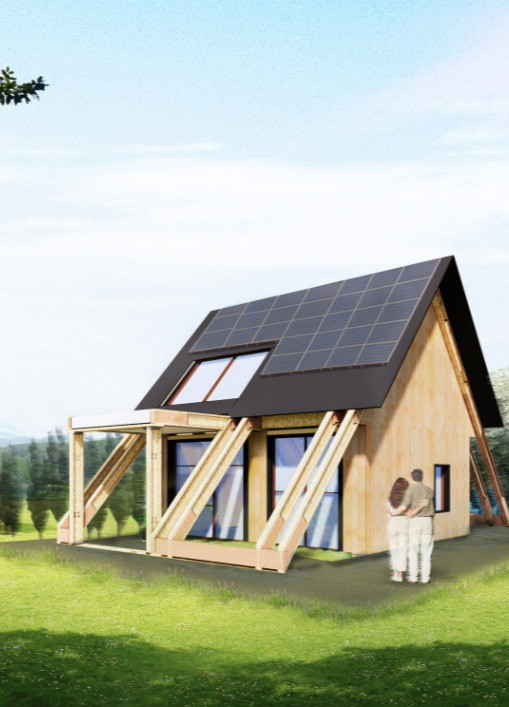5 key facts about this project
The design focuses on addressing the urgent challenges brought about by the recent pandemic, particularly in Wuhan, a city that has faced significant restrictions due to social distancing. The concept revolves around micro homes that act as "ecological islands," providing safe and functional living environments for families in quarantine. The primary aim is to create practical and sustainable spaces that can be quickly deployed to meet immediate housing needs.
Design Efficiency
The micro homes are built using factory-produced components, which allows them to be assembled quickly. Typically, two people can complete the construction in about two weeks. This speed is essential during emergencies when rapid housing solutions are necessary. The use of prefabrication reflects a modern approach to construction, making it possible to provide housing in a practical manner.
Flexible Living Spaces
Each micro home features three main layouts: Daily Mode, Social Mode, and Sports and Leisure Mode. Daily Mode caters to the everyday needs of couples, maximizing storage through modular furniture. As restrictions ease, the Social Mode allows for gatherings, with a layout that can be reconfigured to accommodate more people. The Sports and Leisure Mode includes sufficient space for physical activities, promoting health and well-being during isolation.
Material Considerations
While the specific materials are not detailed in the presentation, the design implies the use of space-efficient and durable components. The emphasis on modularity suggests lightweight solutions that support both the speedy construction process and adaptability for different living arrangements.
The design responds thoughtfully to the needs of families facing isolation. It combines practicality, sustainability, and community interaction in a compact form. Features such as flexible layouts and efficient space utilization highlight a careful consideration of modern living realities, resulting in a design that prioritizes comfort and function.




















































